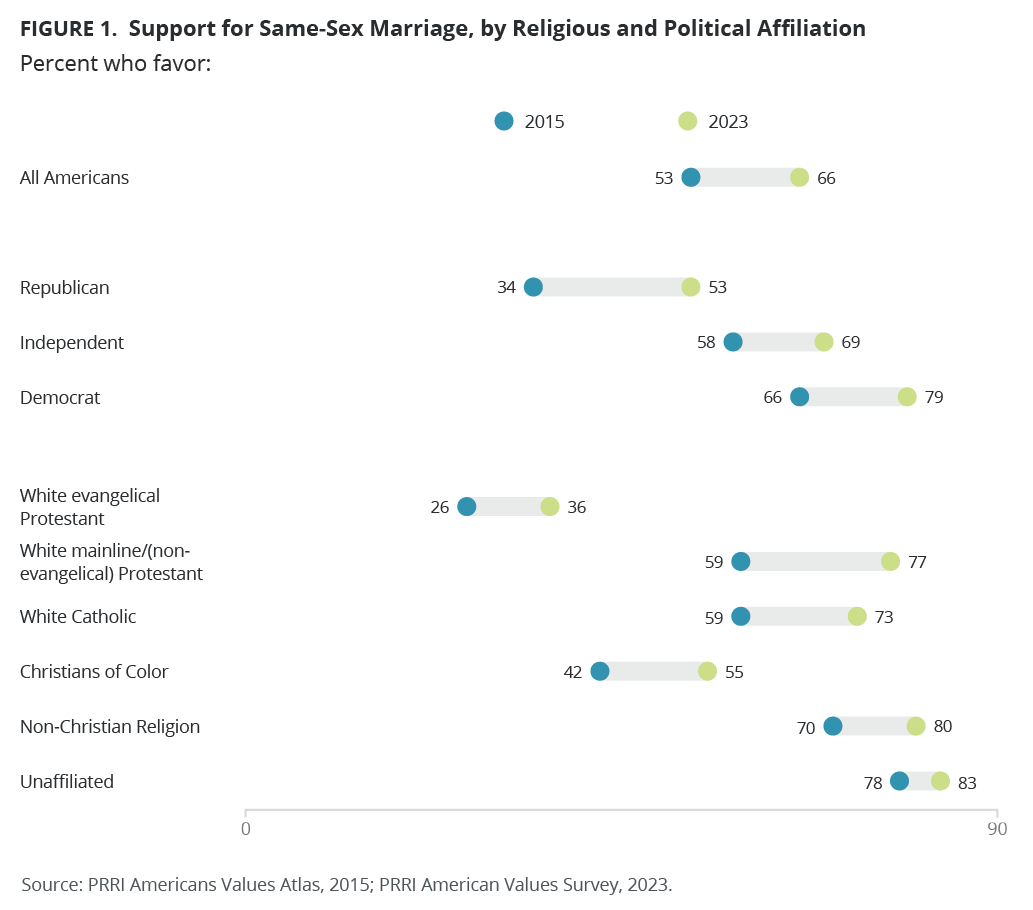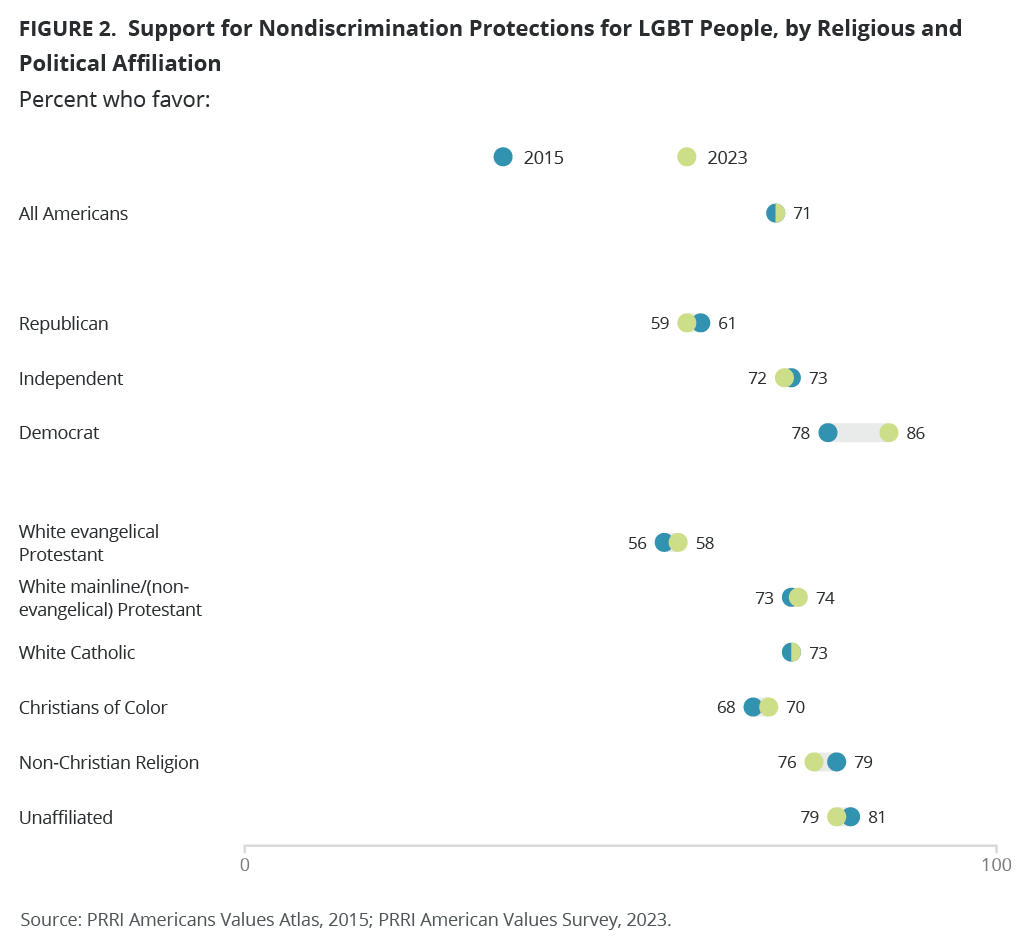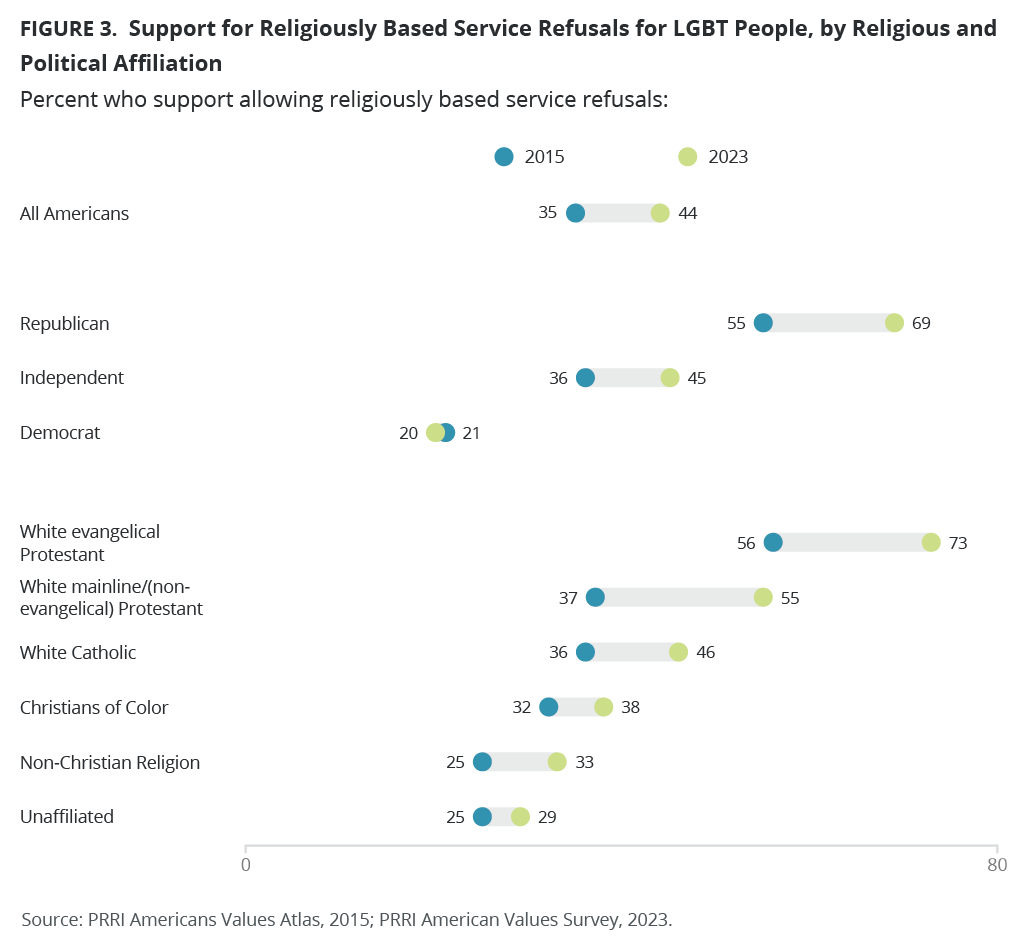Thirty years ago, President Bill Clinton signed into law the Religious Freedom Restoration Act (RFRA). Passed with overwhelming bipartisan support in Congress, it was intended to provide legal guidance following a landmark Supreme Court decision issued three years earlier that many interpreted as a potentially dangerous restriction on the constitutionally protected right of religious expression. The RFRA stipulated that a law can violate religious freedom only if that law constitutes a “compelling government interest.”
Over the past several decades, lawsuits involving religious freedom disputes have involved diverse religious traditions and arenas of social life. In recent years, however, the cases making media headlines have revolved around a persistent tension facing the courts: conservative Christian opposition to new laws protecting the rights of LGBT people.
Courts are witness to instances wherein religious freedom and the freedom from discrimination become competing interests – when an evangelical baker or website designer refuses to provide their services for a gay wedding, for example, or when a Catholic adoption agency refuses to place children within households of same-sex couples. Even though 28 states have outlawed public accommodation discrimination based on sexual orientation or gender identity, the Supreme Court has ruled, in all of the cases referenced above, that the religious plaintiff has a constitutional right to refuse to work with same-sex couples.
Since 2015, the year of the Obergefell v. Hodges ruling from the Supreme Court affirming a right to same-sex marriage, PRRI has asked a national sample of Americans about their views on these issues. In 2015, a clear majority of Americans (53 percent) supported the right of same-sex couples to marry. In 2023, PRRI’s American Values Survey results show that two-thirds of Americans (66%) now hold this view. Americans are even more likely to agree that laws should protect LGBT people from discrimination in jobs, public accommodations, and housing. The percentage of Americans who agreed with this view remains stable: it is 71 percent in the 2023 results and has been at that level since 2015. Previously, the percentage of Americans who supported religious business owners refusing service to gays and lesbians rose from 35 percent in 2015 to 44 percent in 2023. In other words, many Americans support various measures of LGBT equality while they also increasingly support protecting the rights of conservative Christians who oppose it.

The direction and strength of these changes have depended upon both political and religious affiliations. In 2015 among Democrats, 78% supported nondiscrimination laws and 66% supported marriage equality. In 2023, Democratic support for these policies increased to 86% and 79%, respectively. Among Republicans, support for marriage equality increased quite dramatically from 34% in 2015 to 53% in 2023. Support among Republicans for nondiscrimination laws declined slightly from 61% to 59%. Still, we see clear support in 2023 across all political ideologies for marriage equality and nondiscrimination protections for LGBT people.
When it comes to religious affiliation, attitudes about marriage are more mixed. In 2015, 26% of white evangelical Protestants supported the legality of same-sex marriage; the level of support has risen to 36% in 2023. A majority of all other religious and non-affiliated Americans have supported marriage equality, as well, increasing in support between 2015 and 2013.
Nondiscrimination protections attract stronger and more consistent support across religious groups. Even among white evangelical Protestants, nearly 60% supported nondiscrimination protections in both 2015 and 2023. Among religious Americans, non-Christians hold the most progressive views, with about 8 in 10 supporting nondiscrimination laws in both 2015 and 2023. Support is slightly higher among unaffiliated Americans.

Shifting to the rights of religious business owners refusing service to gay and lesbian people, we see that white Christians have notably increased in support levels for these business owners. In 2023, for instance, 73% of white evangelical Protestants hold this view, compared to 56% back in 2015. For white mainline/(non-evangelical) Protestants, support for religious business owners withholding services grew from 37% to 55% over that time. Among white Catholics, it went from 36% to 46%. Support among Christians of color and non-Christians for the right to refuse services also grew, but less dramatically, from 32% and 25%, respectively, in 2015, to 38% and 33%, respectively, in 2023. Low levels of support among these groups are likely reflective of their connection to and awareness of the United States’ history of legalized discrimination. Support increased slightly among religiously unaffiliated Americans (from 25% to 29%).
When it comes to political affiliation, Republicans and independents have become more supportive of this form of religious exemption, whereas Democrats’ attitudes have largely remained the same over time. Thus, overall support among Americans for religious business owners to be able to refuse service to gay and lesbian individuals and couples has increased.

As Americans have become increasingly supportive of LGBTQ equality in the twenty-first century, anti-LGBTQ activists have turned to the courts to advance their agenda citing religious freedom claims. As these cases have made their way through the courts, garnering the attention of both politicians and media outlets, public opinion has changed. Over the past decade, we see increasing support for different measures of LGBTQ equality and yet also increased support for one strategy to oppose it.
Kelsy Burke, Ph.D., is a member of the 2023-2024 cohort of PRRI Public Fellows.